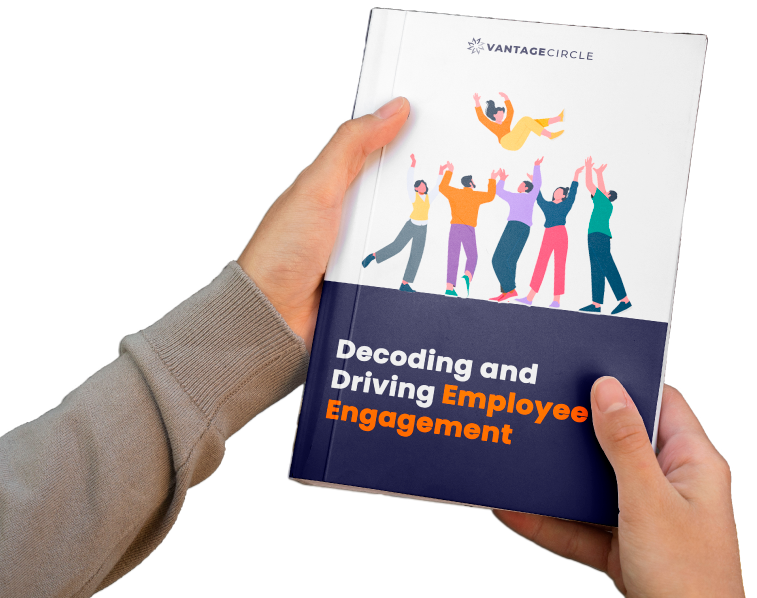Use of Social Media in the Workplace- Advantages and Disadvantages
Social media in the workplace- Should you allow it or not? It is a relevant but debatable topic.
Facebook, Twitter, and LinkedIn are well-known examples of social media platforms, but social media can be of different types. Such channels may include Internet forums, online profiles, podcasts, blogs, photos and video, text and instant messages services. Other than these, there are music streaming applications, and audio services based on the internet, to name a few.
During a workday, employees use social media in different ways. But more frequently, we see employees- Instagram what they had for lunch, share memes, and post selfies on Facebook
What Do Surveys Say About The Use Of Social Media In The Workplace?
A survey from 2012 showed that workers spend an average of 1.5 hours a day at work on social media. That results in 7.5 hours every week, more than 30 hours every month, and 390 hours squandered a year! Also, that does not consider other regular interruptions like chit-chatting with colleagues, coffee breaks, and attending individual messages/calls.
According to the Pew Research Centre in 2014, 77 percent of staff reported using social media in the workplace. It is despite the fact that huge numbers of businesses ban the use of social media in the workplace. Whereas others have specific policies about its use on the job. Thus, employees can strongly be present in social media irrespective of all the efforts companies take to curtail their use.
At the same time, many workers offer companies direct benefits by improved social media enabled contact, advertisement, and networking. Platforms such as Twitter and Facebook have been commonly considered successful places to create deeper connections with consumers or partners. Wouldn't it be a mistake to think that social media in the workplace are always being used for personal reasons?
Research has revealed that 82 percent of workers agree that social networking will strengthen working relationships. Again, 60 percent believe that social networking supports the decision making process, helping them collaborate, share ideas, and solve problems. Among the 18 to 24-year-olds, 5% see social networking as an 'entitlement.' And, almost half of them would not work with an organization that banned its use.
However, as social media is increasingly coming to the fore, employers and managers are faced with a tough decision. Will the employees be permitted to use social media at work at all? There are many 'what ifs' and 'why not' in this debate. As a result, it gets difficult for organizations to decide what could be the best for them.
We have made a list of pros and cons of using social media in the workplace. You can refer to before allowing your employees to use it.
Advantages Of Using Social Media In The Workplace
1. Improves employee engagement
Allowing employees to take short breaks for social networking throughout the day will boost mood, which will potentially increase employee engagement. It will strengthen their confidence and happiness and make them feel valued. It can help your employees to feel happy, loyal, and satisfied, resulting in increased productivity.
Similarly, recognizing your employees for their efforts over social media can make them feel valued and appreciated.
2. Strengthens workplace relationships
Having a friend at work is a blessing, and social media plays a significant role in forming healthy relationships. It is the simplest way to encourage contact between workers and help exchange thoughts and improve interaction at work and home. When workers know they are valuable and have positive connections in their company, they are more likely to stay.
3. Boosts employer's brand
Social media is a fantastic way to create a good awareness of your business. If you allow the employees to post nice stuff about the organization, it can be helpful for you. If they share insightful articles and videos, and demonstrate how much they enjoy their work, it will improve the employer brand. If your employees post on LinkedIn, you can use LinkedIn analytics to get valuable insights into the effectiveness of your employees' engagement strategies.
Brand surveys and campaigns can also be done on different social media sites.
LinkedIn is such an excellent professional networking site that can create a lot of positive buzz about your company. It can easily convey your company culture and can attract talents who will blend in well. Digital natives also use social networking as a means of development opportunities.
Isn’t this of much value to your business?
4. Helps improve employee recognition and retention
Your organization can acknowledge exemplary achievement in social media platforms. It can be anything from outstanding performances, job anniversaries to welcoming new recruits. Such appreciation allows employees to improve communication and helps to create cohesiveness in teams.
Social media can reduce employee turnover for businesses. Evolv, a big data company, has identified a correlation between social media site usage and improved retention. According to their analysis, workers who used one to four social media platforms stayed longer at their jobs than their peers. They took a sample size of 39,112 employees.
5. Enhance employee learning
Employee development and learning is a must to update and upgrade the existing skills of the workforce. Social media can create learning opportunities for employees, expand knowledge, and develop personal skills. We come across so many different articles across social media about how to be a better leader, team member, etc. We can find excellent research, business statistics, debates, and news stories to dive in and flourish.
Thus, social media can be a vital forum for information exchange for staff at all levels. They can use blogs, microblogs, and following professionals and communities of similar practice. Such resources and communities allow social networking collaboration platforms to boost quality and workflow for the job. It can work as a collaborative tool, improving workflow.
Disadvantages Of Using Social Media In The Workplace
1. Brings down productivity
Too much of everything is dangerous and social media is no exception. A huge amount of time would be lost if workers are permitted to access social media in the workplace. Spending too much time on social media can also divert the mind from work to online attractions. It will bring down productivity in no time.
In fact, a recent study says,
70% of businesses reported having to take disciplinary action against employees for social media misuse.
Thus, business managers should be able to maintain a fine balance between encouraging social media for more productivity and addiction.
2. Increase technical risks
Hacking, viruses, and scams are too common these days, and many of them come from social media. If you don't have proper security for Instagram or Facebook, accessing social media in the workplace may be a significant risk. You can also maximize digital safety for your employees by making sure they are using secure and strong passwords. It will help to avoid the leaks of work-related data online.
Again, employees with malicious intent pose a more significant threat to personal data rather than cyber criminals.
3. Cause 'social media fails'
Irresponsible comments and posts quickly get viral and can destroy the organization's image in seconds. It can annoy your clients and bring massive public outrage against you. There are so many examples of social media fails that got people fired and have ruined corporations.
4. Breed jealousy among employees
People post personal things on social media. It may be about possessing a new house, a new car, or a new piece of jewelry. It can create envy among peers.
One can also use those posts to annoy and mock people in the office. It can drag down employee morale and, therefore, the organization's efficiency.
5. Hampers mental health of your employees
Utilizing social media platforms excessively at work can be bad for employees' mental health. Social media can cause feelings of inadequacy by continuously showing curated and idealized depictions of other people's lives. This can result in despair, anxiety, and low self-esteem. Employees may feel under pressure to always stay connected on social media to prevent feeling left out. This may worsen stress levels and lead to an unbalanced work-life schedule, which could harm general health and well-being.
5 Ways To Monitor Your Employees' Use Of Social Media In The Workplace
I think balance is the secret to this, like with most other things in life. Even if you ban it, your employees will still find a way to access their social media accounts (via mobile devices). Thus, encourage them to use it productively instead of fully prohibiting their social media presence.
However, here are a few things that you can take care of:
1. Create social media policies
Establish thorough social media policies that spell out appropriate online conduct, expectations for how the company should be represented, and penalties for violations. These guidelines establish standards and serve as a framework for monitoring.
2. Regular Policy Communication
Educate employees about social media guidelines through training sessions, workshops, or educational resources. This ensures that users are aware of the expectations and implications of using social media.
3. Use Monitoring Software
Use monitoring tools or software to keep checks on the employee's social media activity. By providing insights on public posts, interactions, and online behaviour, these tools make it possible to spot rules that have been broken as well as instances of cyberbullying and harassment.
4. Respect your Employees’ Privacy
Strike a balance between employee privacy rights protection and compliance. When monitoring social media, be sure to be transparent about how and why you're doing it while also adhering to any privacy laws and guidelines.
5. Address Problems Quickly and Confidentially
As soon as policy violations, cyberbullying, or harassment become apparent through social media monitoring, they should be addressed. Take proper disciplinary action, assist the affected employees, and emphasise the value of polite online conduct.
Conclusion
Social media has become a prominent tool in the workplace, offering both advantages and disadvantages. However, it is crucial for employers to be mindful of its potential impact on productivity, employees' mental health and well-being.
By implementing effective policies and promoting responsible usage, organizations can harness the best benefits of using social media in the workplace.
FAQs About Social Media In The Workplace
1. How can we use social media professionally?
A. From a professional perspective, social media enables you to:
- Establish a broad network of peers and influencers in your chosen field of work.
- Keep abreast of the most recent concepts and trends in your industry.
- Helps to highlight your achievements and position yourself as an industry thought leader.
2. How can social media be used for employee development?
A: Social media can be a valuable resource for professional development. Employees can follow industry leaders, join professional groups, and participate in discussions to stay updated on industry trends and best practices. They can also share and discuss informative articles, fostering a culture of learning and knowledge sharing within the organization.
3. What measures can be taken to ensure company information security while using social media at work?
A: Companies can implement strict social media policies that outline what kind of information can be shared. Regular training sessions can be conducted to educate employees about the risks and best practices of social media use. Additionally, companies can use secure networks and install reliable security software to protect against potential cyber threats.
4. How can social media enhance the company's brand image?
A: Employees can act as brand ambassadors on social media, sharing positive experiences and news about the company. This boosts the company's visibility and gives a more personal and authentic view of the company. Companies can also engage with their audience through social media by responding to comments, sharing relevant content, and participating in discussions.


















